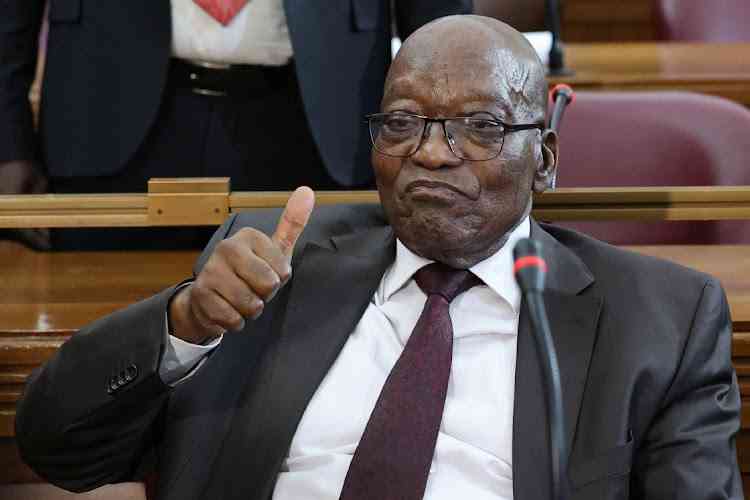
Africa should switch to circular economy IF the world is to achieve the 2030 development goals, African countries must institute government-backed efforts to switch to the sustainable circular economy model of production/consumption.
The circular economy is a model of sustainable production and consumption that shifts economic growth from resource consumption to more sustainable approaches. For example, the circular economy demands designing products for longer use and ease of repair rather than consumption, a profit-oriented approach that produces short life products to force resell.
Economy experts describe the circular economy model as a new paradigm for business that aims to achieve economic growth through new sustainable business models.
There are various factors that influence the transition to the circular economy, including market awareness, behaviour change, greater access to data and regularisation of informal activities.
For the circular economy to work, it requires rational practices by all parties to any given product value chains, from producers all the way to the consumer, all are responsible. In this regard, multinational companies (MNCs) are key because they have long value chains including their suppliers, consumers, and even financial and government institutions.
To meet global circularity goals, as articulated in Sustainable Development Goal Number 12 “Responsible Production and Consumption”, circular economy principles require extremely close co-operation between MNCs and small and medium enterprise (SME) suppliers who are mostly in developing countries.
However, the trouble is that SMEs are reluctant to switch from linear economy models because they are profitable in the short run. To ensure this noble goal is met, there is need for funding to support sustainable production approaches.
In its latest report, the African Development Bank said the circular economy offered a low-carbon and climate-compatible development strategy with strong adaptation benefits for the continent.
- Chamisa under fire over US$120K donation
- Mavhunga puts DeMbare into Chibuku quarterfinals
- Pension funds bet on Cabora Bassa oilfields
- Councils defy govt fire tender directive
Keep Reading
To push and advocate for circular economy uptake around the globe, the European Union launched the switch to circular economy value chains project.
The project is designed to accelerate the uptake of circular practices. In the context of Africa, the project will support ongoing work by the African Circular Economy Alliance to promote and facilitate the switch to the greener more sustainable circular economy model of production and consumption. – Further Africa
Zec has no capacity to run free, fair elections
ELECTION observer teams deployed by Heal Zimbabwe in the just-ended by-elections have expressed concern over the ability of Zimbabwe Electoral Commission (Zec) to preside over free and fair elections.
Observers noted that in most cases, Zec turned away several registered voters while in some cases the ruling Zanu PF party violated the Electoral Act by campaigning in the vicinity of polling stations on the day of the election.
In Chivi South, Zec officials did nothing to stop Zanu PF-branded vehicles from campaigning around polling stations.
Observers noted that such flagrant disregard of the Electoral Act casts doubt in Zec’s capacity to preside over free and fair elections in 2023.
The reports also noted that the recording of voters’ addresses and phone numbers under the guise of COVID-19 contact tracing by Zec at polling stations was also an act of intimidation.
In Gokwe Central, the Zanu PF leadership told people at polling stations that collecting identity details of voters was meant to identify those who voted for “wrong” candidates.
To counter electoral malpractices, the observers noted that Zec should be independent in discharging its constitutional obligations.
Zec should also furnish political parties with the voters roll in time so that anomalies can be addressed.– Heal Zimbabwe Trust
Health sector has virtually collapsed I USED to blame the country’s rich and powerful citizens for seeking medical treatment outside the country until I came face-to-face with Zimbabwe’s decaying public health system last week.
When people criticise our leaders such as President Emmerson Mnangagwa, Vice-President Kembo Mohadi, Oppah Muchinguri and former President Robert Mugabe and his wife Grace for shunning local health institutions, it is because they have never experienced firsthand what our local doctors and nurses go through on a daily basis.
Local hospitals have deteriorated over the years that they are now “departure lounges” for the sick and I don’t think our leaders are prepared to take such a risk.
The central hospitals are understaffed, dilapidated, under-resourced and in dire need of an overhaul.
I also do not think that the government has what it takes to resuscitate the sector. That Zanu PF has neglected the health sector for the past four decades is evident.
When the COVID-19 pandemic was at its peak, people resorted to home remedies because they had nowhere to seek help. It is really sad.
Last week, I had to take an ailing relative to a Harare City Council clinic in Glen View where we were subsequently referred to Sally Mugabe Central Hospital (formerly Harare Central Hospital).
After waiting for close to four hours for an ambulance, we had to hire a private car to ferry the patient to the central hospital, where I witnessed firsthand how our health system has been stretched to the limit.
There was only one doctor attending to hundreds of patients in the casualty section. At times, the doctor had to leave patients and attend to funeral parlour officials seeking certification of corpses.
After spending nearly three hours in the queue, my relative could not make it. He died before he was attended to.
I wonder how many people in Zimbabwe have gone through similar ordeals at the country’s public hospitals.
How long shall people continue to suffer, while we have a government that thinks erecting Mbuya Nehanda statue is more important than buying ambulances that serve the people? – Mukunda Chitova











